Enlighten yourself about species that glow
I had my first encounter with a “glow-in-the-dark” species when I was a child. My parents and I were visiting relatives in St. Catharines, Ontario, and we were in their backyard enjoying the warm, summer evening. In the distance, I...
Where are they now? Intern Alumni Spotlight: Brett Norman
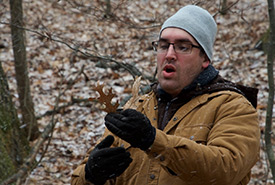
Brett Norman leading a hike at Backus Woods, ON (Photo by Len Grincevicius)
This blog marks the ninth Intern Alumni Spotlight — a series highlighting some of the individuals who have interned with the Nature Conservancy of Canada (NCC) in the past. Last month, Claire Elliott was featured as the Intern Alumni...
Conserving carbon sinks: A natural solution to climate change
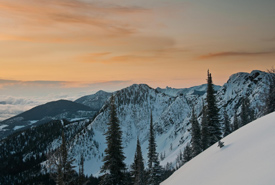
Darkwoods mountains, BC (Photo by Bruce Kirkby)
In the global effort to fight climate change, forests, wetlands and grasslands are more and more being recognized for their important role in absorbing greenhouse gas emissions (i.e., carbon dioxide) and storing carbon over the long term....
Maybe, sparrow, it's not too late
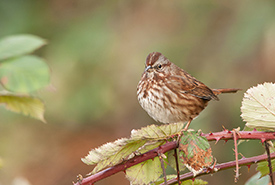
Song sparrow (Photo by Stuart Clarke)
Neko Case is one of my favourite songwriters. Not only is she brilliant and multi-talented and have a stunning voice, she is also a strong advocate for the rights of women, Indigenous Peoples and wildlife. I am also passionate about these three...
Where are they now? Intern Alumni Spotlight: Claire Elliott
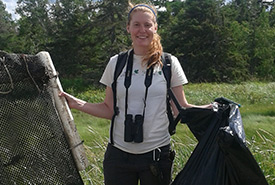
Claire Elliott at a Conservation Volunteers event in Tabusintac, NB (Photo by Joanna Hudgins)
This blog marks the eighth Intern Alumni Spotlight — a series highlighting some of the individuals who have interned with the Nature Conservancy of Canada (NCC) in the past. Last month, Victoria Shore was featured as the Intern Alumni...
Eco-friendly camping: Leaving no trace
Camping is a refreshing way to reconnect with yourself, the people close to you and with Mother Nature. It is a great way to forget your troubles and reset your mind, body and soul. For these and many other reasons, the number of people camping is...
The challenge of beaver dams in Blanding's turtle habitat
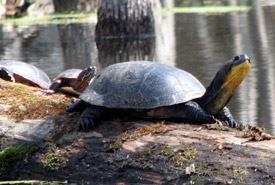
Blanding's Turtle (Photo by NCC)
The beaver and the turtle: it sounds like a Jean de LaFontaine fable, but for my colleague Milaine Saumur, the Nature Conservancy of Canada’s (NCC’s) project manager in the Outaouais, Quebec, it's a true story. A couple of months ago...
Antlers of the East: Tracking the decline of the Atlantic-Gaspésie caribou (part two)
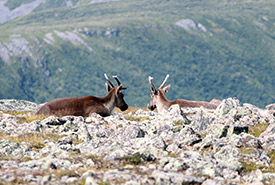
Woodland caribou at the summit of Mont Jacques-Cartier, tallest among the Chic Choc Mountains of Gaspésie National Park, QC. (Photo by Zack Metcalfe)
In part one of Antlers of the East, I discussed the decline of the Atlantic-Gaspésie caribou. Here is part two. Stand against extinction Since 2008, the caribou of Gaspésie National Park have been under the thoughtful study of...
Something’s Fishy: Polar opposites
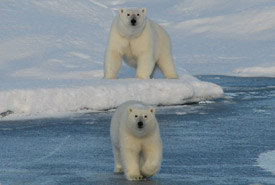
Polar bear mother and cub, Jones Sound, Nunavut (Photo by NCC)
Polar bears are the largest bear species and land carnivore in the world. They are found in the Arctic, where they scour sea ice and coasts for their next meal. Two-thirds of the global population of polar bears is found in Canada. The...
What ash trees and bumble bees are telling us
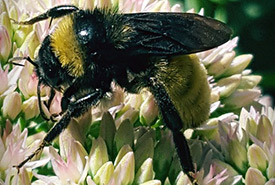
American bumble bee (Photo by K.S. Gardener/iNaturalist)
Black ash and American bumble bee are not species I thought we would ever need to save. When I started my studies in conservation over 25 years ago, bumble bees still seemed commonplace, and I thought of ash as a common tree that was great for...

